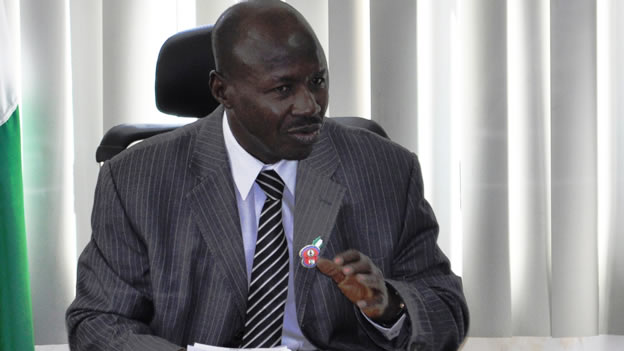The Inter-Governmental Action against Money Laundering in West Africa (GIABA) has commenced training of government officials on combating money laundering and terrorist financing.
Speaking at the event in Abuja on Monday, Modibo Tukur, head of international operations of the Economic and Financial Crimes Commission (EFCC), who represented Ibrahim Magu, the commission’s acting chairman, said the political will of President Muhammadu was aiding the anti-graft agency in its duty.
He thanked the organisation for its effort in training government officials, and pledged the commission’s support to them.
GIABA is holding a four-day pre-assessment training workshop for anti money laundering/combating financial terrorism stakeholders in Nigeria.
Advertisement
According to a statement issued by the organisation, “the pre-assessment training is targeted at AML/CFT stakeholders drawn from relevant competent authorities (FIU; Regulatory Agencies – the Central Bank, law enforcement agencies, line ministries (finance, justice and interior; financial institutions, designated non-financial businesses and professions (DNFBPs)”.
“A key aspect of GIABA’s mandate is to conduct mutual evaluation exercises to determine the efficacy of measures adopted by member states including their conformity to acceptable international standards. The mutual evaluation process assesses countries’ level of compliance with the Financial Action Task Force (FATF) recommendations,” the statement read.
“The mutual evaluation enables GIABA and its development partners to determine the type of technical assistance required by member states to improve measures against money laundering and terrorist financing. The mutual evaluation exercise is of immense benefit to the assessed country because it provides information to the international community about the country’s financial, governance and legal frameworks, and thus creates a platform for inflow of foreign direct investment.
Advertisement
“In February 2012, the FATF revised the recommendations to address new and emerging threats, clarify and strengthen many of the existing obligations, while maintaining stability and rigor in the recommendations. One of the key focus areas of the revised recommendations relates to strengthening of the requirement to allow countries to take a more focused approach on high risks areas so that resources could be focused in such situations.
“Basically, countries are to apply a risk-based approach in dealing with money laundering and terrorist financing, and adopt appropriate measures to mitigate identified risks. Another important aspect of the revised recommendations relates to the emphasis on effectiveness.”
Add a comment







